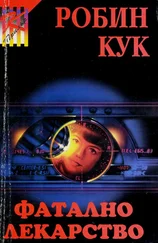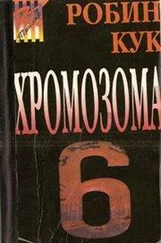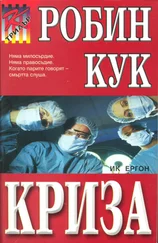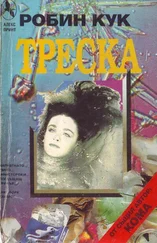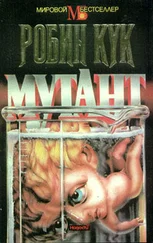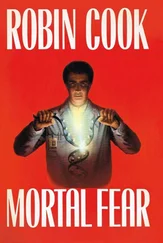This book is dedicated to the countless couples who have suffered the emotional and physical trials and tribulations of infertility and its modern treatments.
Vital Signs could not have been written without the assistance of Jean Reeds, whose professional and personal knowledge of the human heart is matched only by her own.
The infecting bacteria came in a swift gush as if flushed from a sewer. In an instant, several million slender, rod-shaped microorganisms filled the lumen of the fallopian tubes. Most were grouped in small, tight clumps. They settled against the velvety convolutions of the mucosa, nestling in the warm, fertile valleys, absorbing the abundant nutrients and expelling their own foul excretions.
The delicate cells lining the interior of the oviducts were helpless in the face of the sudden invading horde. The putrid waste of the bacteria — caustic proteins and greasy fats — burned like acid, resulting in instant destruction of the fine cilia whose normal function was to move an egg toward the uterus.
The tubular cells released their defensive and messenger chemicals, signaling the body for help. Unfortunately, the defensive secretions had no effect on the bacteria, whose membranes were protected by a brownish waxy envelope of lipid.
Medical students fresh from their microbiological labs would have recognized the bacteria — or so they would have thought. The fatty bacterial cell walls were “acid fast,” capable of absorbing certain stains and resisting decolorizing with acid alcohol. The medical students would have cried in unison, “Tuberculosis,” with a self-congratulatory sense of satisfaction.
Tubercular or not, as far as the tubal cells were concerned, any kind of invading bacteria meant trouble. The messenger chemicals that the cells had released initiated the complex immunological defense against foreign invaders which had evolved over the entire billion-year evolution of earthly life.
The chemicals released initiated a change in the local blood vessels. The blood flow increased and opened up tiny fenestrations, releasing plasma into the tissue. Specialized, first-line-of-defensecells called granulocytes migrated from the bloodstream directly into the bacterial horde. These cells released more chemicals, including potent enzymes. They also combated the bacteria directly. But for them it was a kamikaze exercise — after releasing their granules, nearly all the granulocytes perished.
Soon, larger cells called macrophages answered the chemical call, mobilizing themselves from lymph nodes and the bone marrow. They too passed through the pores of the capillaries to join the melee. They were more successful than the granulocytes in engulfing some of the bacteria. They also released chemicals into the developing pus, which was now taking on a greenish cast.
Within seven hours lymphocytes began to accumulate, marking the beginning of another level of immunological defense. Since this particular type of bacteria had not been encountered before, there were no specific antibodies circulating. But the process to make them had begun. T-lymphocytes massed and underwent chemical-induced alterations. They also stimulated the arrival of more macrophages which in turn stimulated more T-cell aggregation in an ever-increasing spiral of cellular activity.
After twenty-four hours, the balance of the struggle had already tipped away from the bacteria. The tubular cells were winning but the victory was Pyrrhic. Vast areas of the delicate mucosal lining of the fallopian tubes had been destroyed by the immunological reaction. Extensive scarring was inevitable. Interference with the blood flow added to the injury. And on top of that, the remaining bacteria and their waste continued to stimulate the immune system’s response. The body persisted in amassing more cellular troops, unaware that the battle had been won. Macrophages continued to arrive, and their activity caused more destruction. In their frenzy, some of the cells underwent nuclear division without subsequent cellular division, resulting in giant cells with multiple nuclei.
Again, the medical students would have smiled knowingly if they’d had a chance to view this sequence through the lens of a microscope. They would have nodded with appreciation at the distorted architecture of the developing granuloma.
This cellular drama continued to play out over several weeks within the dark recesses of thirty-one-year-old Rebecca Ziegler’s womb. Rebecca herself had no idea of frantic chemical battles being waged within her body, nor of the resultant cellular destruction. There had been a few hints: subtle changes in her vital signs in the form of a low-grade fever and a mildly elevated pulse. She had even experienced some cramps, lower abdominal tenderness, and a mildvaginal discharge, but none of these signs and symptoms seemed cause for concern. Even a mildly abnormal Pap smear which had caused her momentary worry had been proven to have been perfectly normal after all.
Rebecca ignored these petty maladies. After all, everything else in her life was wonderful. Six months earlier she’d married, to her mother’s relief, and her life had taken on new meaning. She’d even accepted a new job as one of the youngest litigators for a prestigious Boston law firm. Everything was perfect, and she was not about to let some mild physical complaints mar her mood.
Yet there was more to this episode than Rebecca could have known. The bacteria had started a chain of events that went beyond the immunological. The consequences were destined to come back to haunt her, to rob her of her happiness, and eventually, indirectly, to kill her.
An agonizing screech of metal scraping against metal jangled Marissa Blumenthal’s already frayed nerves as the aging MBTA subway train strained to navigate the sharp turn into the Harvard Square station in Cambridge, Massachusetts. Marissa closed her eyes for a moment in a vain attempt to shield herself from the grating racket as she clutched an upright pole. She wanted to get out of the train. Besides peace and quiet, she needed fresh air. Wedged among a crowd of six-foot-plus giants, five-foot Marissa felt more claustrophobic than usual. The air in the subway car felt oppressively warm. It was a rainy February day and the damp smell of moist wool added to her discomfort.
Like everyone else in the train, Marissa tried to avoid eye contact with the people pressed up against her. It was a mixed crowd. Harvard Square attracted both ends of the spectrum. To Marissa’s right was an Ivy League lawyer-type with a black ostrich briefcase, his nose buried in a crisply folded copy of The Wall Street Journal. Directly in front of her was a fetid-breathed skinhead, outfitted in a denim jacket from which the sleeves had been cut. He had clumsily tattooed swastikas on each knuckle of his hands. To her left was a massive black man with a ponytail of dreadlocks, wearing gray sweats. His sunglasses were so dark that Marissa could not see his eyes as she furtively glanced in his direction.
With a final lurch that all but sent Marissa to the floor, the train stopped and the doors slid open. Breathing a sigh of relief, Marissa stepped out onto the platform. Normally she would have driven her car from her office and left it under the Charles Hotel, but she wasn’t sure how she would be feeling after her minor surgical procedure, so she’d decided it was more prudent to take the T. There had been talk of her having some kind of sedative or intravenous painkiller, an idea that Marissa was not averse to. She freely admitted that she was not good with pain. If she was groggy after the anesthesia, she thought it best not to drive.
Читать дальше


